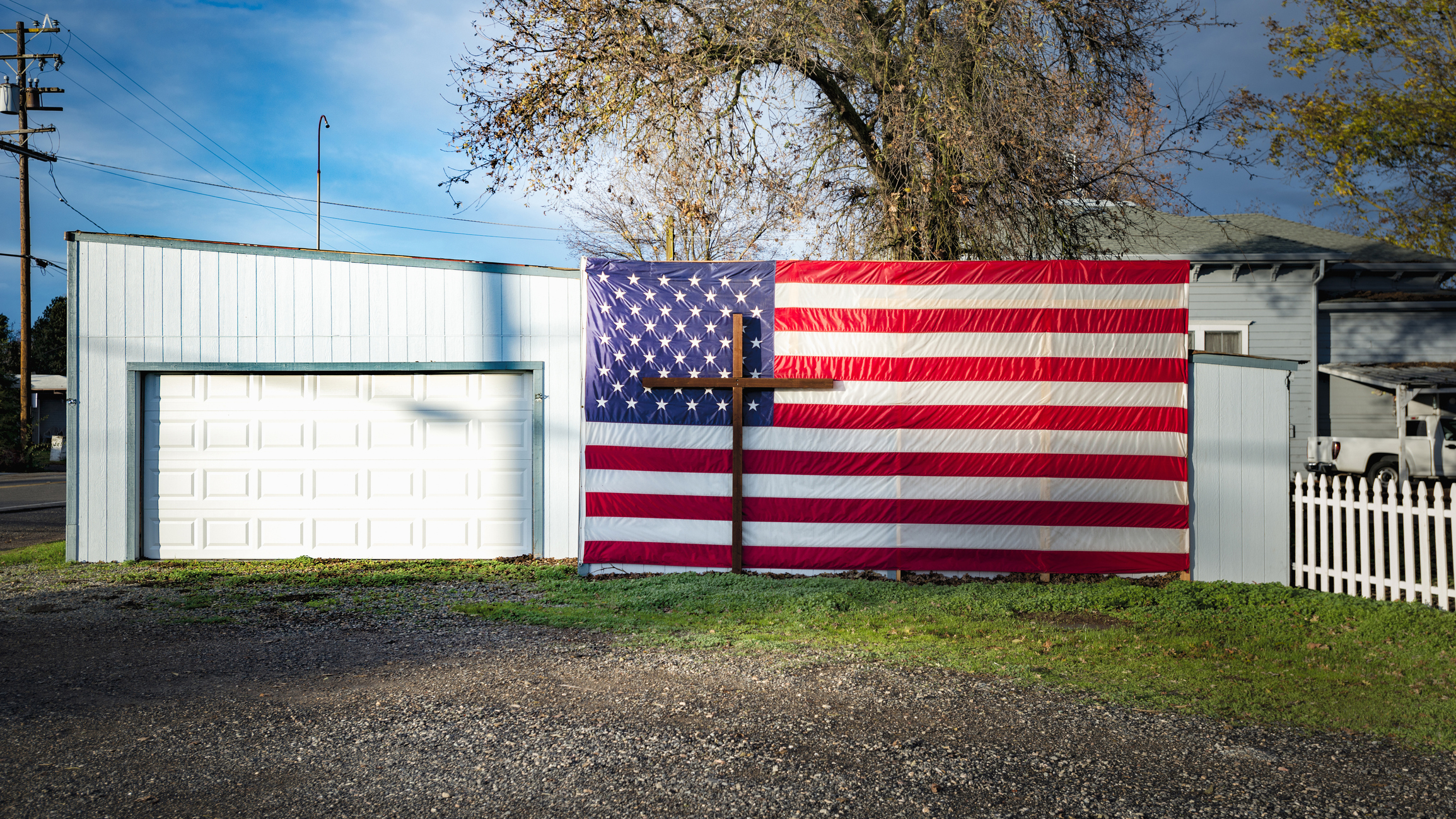
The midterm elections were hardly a shot of confidence for Christian nationalist politicians. True, Republicans like Marjorie Taylor Greene in highly gerrymandered districts cruised to victory. But candidates like Doug Mastriano, Dan Cox, and Darren Bailey lost their elections handily, and others like Lauren Boebert, Kari Lake, and Mark Finchem were all in hotly contested races.
What is the likelihood that Americans who subscribe to Christian nationalism take these results as a referendum against their movement? We think that’s highly doubtful. That’s because white Christian nationalists systematically over-estimate their strength in numbers. And they will almost certainly do so in the future.
Christian nationalism is currently a minority position in the United States. Most Americans don’t believe that America has a special relationship with God, or that the federal government should declare the U.S. a “Christian nation,” or that being a Christian is important to being truly American. And most Americans want a separation of church and state. Moreover, tracking such views over decades shows they are slowly declining, not growing.
But that’s not what white Christian nationalists believe. In fact, we find white Christian nationalists are uniquely confident about their prevalence and the growth of their own views.
In our recent national survey, we asked Americans how much they agreed with statements like “My views on the role of religion in government represent the views of most Americans” and “The percentage of Americans who share my views on the role of religion in government is growing.”
Empirically speaking, neither statement is true for Christian nationalists. Yet, the more that white Americans subscribe to Christian nationalist ideology, the more they believe most Americans share their views on religion in government and the more they think that percentage is growing.
For example, among white Americans who disagree with the statement “The federal government should declare the United States a Christian nation,” less than 25 percent believe most Americans share their views on religion in government. Under 30 percent believe that percentage is growing.
In contrast, among those who strongly agree that the government should formally recognizing Christianity as the national religion, nearly half (46 percent) believe most Americans share their views and that this percentage is growing. Less than a quarter disagreed with either statement. And we see nearly identical patterns for other indicators of Christian nationalism.
More from TIME
Given what we know about the slow decline of Christian nationalist beliefs, and the inconsistent results Christian nationalist candidates experienced last Tuesday, how could white Americans who subscribe to that ideology believe most Americans back their views in growing numbers? Where does such confidence come from?
One reason is what social scientists call the “false consensus effect.” The false consensus effect is when people tend to wrongly think their own views are held by the majority. This happens most often when people are surrounded only by those who agree with them. That is certainly likely to be the case among right-wing leaders and groups who trust few media sources beyond those catering to their views.
Another more theological reason lies in various assurances all Christians cling to: that victory is in God’s hands and thus is assured. And in an even more nuanced versions of this theology, some outspoken Christian nationalists like the antisemitic founder of Gab Andrew Torba explicitly preach a “theology of victory.” They believe Jesus Christ is already ruling and all his followers must do is claim dominion over the nations on his behalf.
Still another answer transcends Christian theology and helps make sense of a curious paradox. In other studies, we’ve shown that white Christian nationalists tend to believe that whites and Christians are the most persecuted group in the country. Yet here we’ve shown they also believe they represent the growing majority. This paradox—believing we are the majority but we are also oppressed—reflects the populist, anti-elite character of white Christian nationalism.
Americans who subscribe to white Christian nationalism see themselves as representing “the nation,” and “the real Americans” over and against a corrupt “regime” of elites who would take away their rights and plunge the nation further into decadence. This should sound familiar. White Christian nationalists see themselves as a “moral majority,” who only need to be mobilized to thwart the “Luciferian” agenda of globalism, socialism, secularism, rampant crime, and sexual deviance.
Regardless of the reasons for their confidence, what is clear is that white Christian nationalist leaders and those who follow them are unlikely to be dissuaded from their mission when confronted with the reality of their shrinking numbers or the struggles of candidates like Mastriano or Boebert.
If the results of 2020 and the ensuing embrace of the “Big Lie” are any indication, empirical reality is unlikely to change the narrative in their minds.
More Must-Reads From TIME
- The 100 Most Influential People of 2024
- Coco Gauff Is Playing for Herself Now
- Scenes From Pro-Palestinian Encampments Across U.S. Universities
- 6 Compliments That Land Every Time
- If You're Dating Right Now , You're Brave: Column
- The AI That Could Heal a Divided Internet
- Fallout Is a Brilliant Model for the Future of Video Game Adaptations
- Want Weekly Recs on What to Watch, Read, and More? Sign Up for Worth Your Time
Contact us at letters@time.com